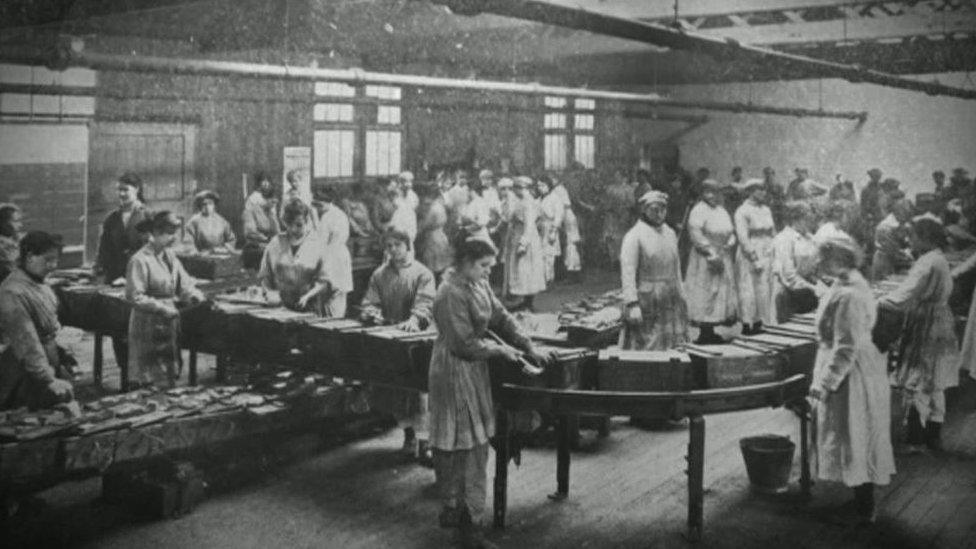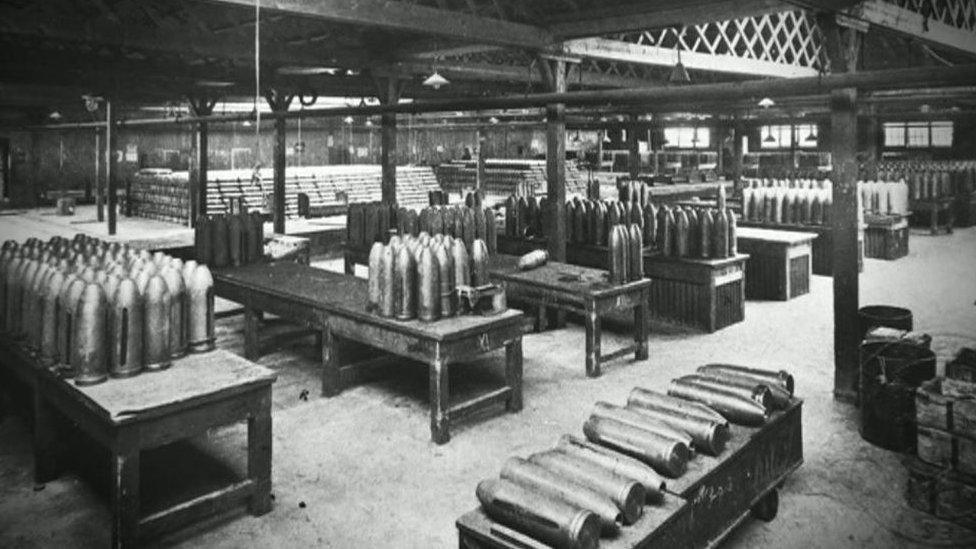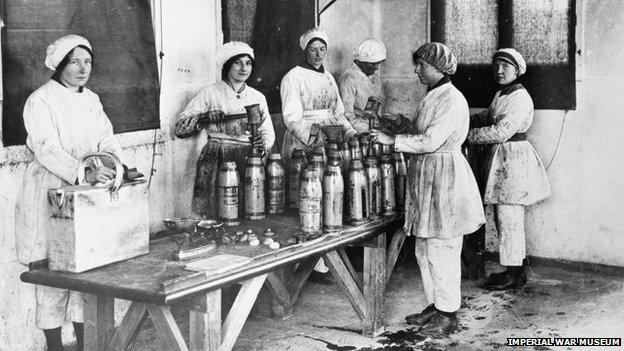Barnbow munitions blast factory site given heritage status
- Published

Women who worked at the munitions factory became known as the 'Barnbow Lasses'
The site of a munitions factory where 35 women were killed in an accidental explosion in World War One has been given heritage protection.
The blast at the Barnbow Munitions factory at Crossgates, Leeds, happened in a fusing room on 5 December 1916.
Historic England recommended the site be protected to recognise the role of women in the conflict.
It has now been protected as a scheduled monument by the Department for Culture, Media and Sport.
Historic England said the story of the "Barnbow lasses", as they became known, was covered up for fear of harming morale.
'Kill people'
Amateur historians Bob and Jacki Lawrence, of East Leeds Historical and Archaeological Society, have researched the Barnbow Lasses for several years.
Mr Lawrence said: "A girl had picked a shell up, put it on a machine and it blew up.
"It killed 35 girls and injured a lot more - there were probably between 150-175 girls working in that room."
Mrs Lawrence said: "A lot of the relatives felt...the girls had not been given the recognition that they should have done, that their story hadn't been told and they hadn't been acknowledged."
Heritage Minister Tracey Crouch said: "As we mark the centenary of the First World War, it's so important that we remember the sacrifices of those who supported on the home front - especially women."
Neil Redfern, of Historic England, visited the site recently, which is now open greenbelt land.
He said: "This site we would consider to be nationally important now.
"This site made munitions, munitions were meant to kill people, this isn't somewhere you could easily come and celebrate but I think it is really important to commemorate."

The history of Barnbow

The explosion at Barnbow led to the single largest loss of life in the history of Leeds
When World War One broke out, there was unprecedented demand for ammunition and three businessmen found the site for the factory
It was built within three months and employed 17,000 workers, most of them women
Three separate explosions happened at the factory, but the most serious was the one on 5 December 1916
A further two women were killed on 21 March 1917 and three men lost their lives in a blast on 31 March 1918

You can see more on this story on BBC1 at 19:30 on Inside Out on Monday 10 October
- Published21 June 2016

- Published2 June 2014
